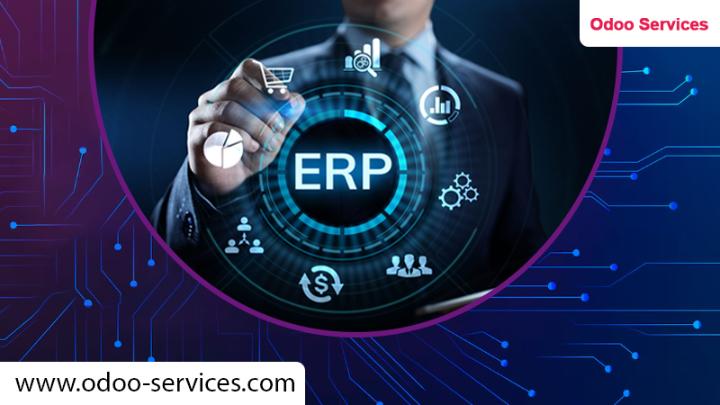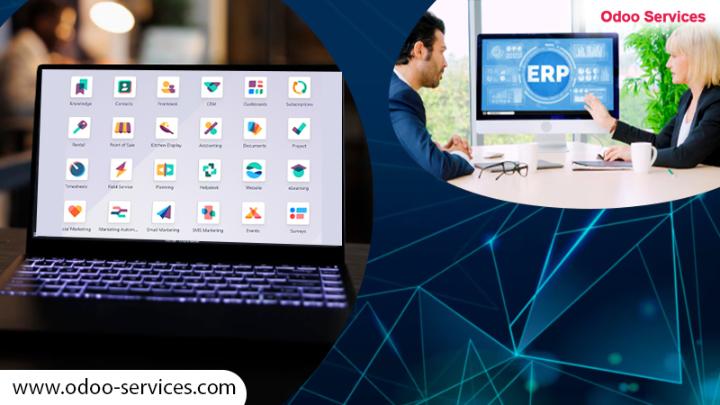Everything You Need to Know About Odoo Implementation in a Concise Guide
Odoo is a very popular ERP solution across the globe. It allows companies, big and small, to implement more efficient, automated, orderly operations management procedures. But the real value of the platform is realized only once the businesses undergo proper Odoo implementation.
This blog post will go through what Odoo implementation really is, why it is important, the working process, common roadblocks that companies encounter, and what can be done going forward to ensure successful implementation. We will further discuss the value of partnering with a professional Odoo implementation team, such as Odoo Services, on the road to long-term success.

What is Odoo Implementation?
The Odoo implementation suggests the procedures for combining the Odoo ERP system for a company. User training, module selection and customization, system configuration, installation, and data migration from earlier systems are all included in this. Implementing seeks to create a completely working ERP instance customized to the specific needs of the company.
Thanks to Odoo's modularity, companies can only choose the features that are really needed. Odoo can be customized for whatever the sector, company size, or module—whether it be inventory, sales, CRM, accounting, manufacturing, HR, or something else. According to the company, a correct Odoo implementation would provide more data for decision-making, enhanced end-customer support, less manual labor, easier processes, and higher productivity.
Why is Odoo Implementation Important?
Concerning maximizing the whole system, a hurried implementation would probably make it useless. Odoo may not perform the tasks deemed essential without sufficient consideration of Odoo planning and execution, therefore squandering resources and producing a disgruntled end-user.
Because Odoo implementation is a vital task of implementation, it directly impacts daily company activities: how data is organized, how workers interact with the system, and the simplicity with which the company executes tasks. Correct execution enhances decision-making, precision, and efficiency; by contrast, problems with execution cause errors, delays, and expense.

Steps Involved in Odoo Implementation
Every Odoo implementation project has a few important stages, and speeding through or avoiding any of them can cause problems or less than perfect outcomes. Collecting Needs: Stakeholders are met by The implementation team to clarify objectives, processes, problems, and overall organizational structure.
Here, the aim is to identify which modules are needed and how the system should run. Investigating the Gaps The team examines any gaps after the requirements have been gathered by matching them to Odoo's present capabilities.
Custom labor might be needed if Odoo does not promptly satisfy a certain demand. Organizing and Personalizing the System Odoo is changed at this phase to fit the structure of the company. Establishing user roles, security levels, approval processes, and workflows is part of this.
Custom modules or fields are created to cover any flaws discovered earlier. Moving all of the company's current data to the new system is the second phase. This includes bills, inventory data, customer logs, and other crucial information.
Before migrating, one should be sure the data is clean and accurate. Without users who know how to utilize it, even the best system in the world won't function. Therefore, administrators and end users are taught how to properly negotiate the new system.
Testing is also part of this step to guarantee everything works perfectly. Live Post-Implementation Assistance Businesses require ongoing support for bug fixes, updates, and future enhancements even after they go live.
Continuous assistance guarantees the dependability and growth of the system along with the business.

Common Challenges in Odoo Implementation
Although Odoo is user-friendly and flexible, the implementation phase may present problems. One of the most frequent issues is the underestimation of the complexity of business processes. Without thorough preparation, the scope of the project can rapidly grow, causing delays and greater costs.
Another problem is data migration. Because of its possibility for inaccuracy or disarray, properly transferring historical data into the new system can be difficult. Data preparation and cleaning are really important, even if they take time.
User resistance is yet another regular challenge. Because they are used to manual processes or antiquated systems, employees might be opposed to change. With good training and communication, adoption can be enhanced and resistance reduced.
Finally, but not least, businesses often struggle to find the perfect implementation partner. Bad choices, unfinished setups, and long-run inefficiencies can follow from a lack of expertise.
How to Make Sure Your Odoo Implementation Is Successful
Companies should follow some best practices to ensure a successful implementation. First, arrange everything meticulously. Identify your objectives and those of your company. Pick the correct modules and steer clear of needless complexity at first.
Work with an experienced Odoo implementation partner. Along with the software, a good partner knows business processes. They can guide you every step and help you avoid usual mistakes.
Invest in training. Make sure your employees can easily use the system. Keep providing support and promote a culture of development and learning. Start little and grow. Implement and test the basic modules before advancing to more sophisticated capabilities. This stepped strategy helps change management and lessens risk.
Finally, observe your progress. Track how Odoo's reporting capabilities are improving your business operations. Make any modifications needed and always work to improve your environment.

Why Should You Use Odoo Services for Your Odoo Implementation?
Odoo Services' main aim is to help businesses install and optimize Odoo ERP. Since no two companies are the same, we know that every implementation calls for a tailored approach.
Projects have been completed in several industries—including manufacturing, retail, services, healthcare, and more—by our staff of expert Odoo developers, advisors, and project managers.
We follow a tried-and-true process that ensures a flawless Odoo migration with the smallest level of interruption to your company processes. Along with the technical elements of Odoo implementation, we help with change management, post-implementation support, and business process consulting.
We aim to help you get the greatest return on your money. Whether you are getting ready to use Odoo or are thinking of switching from another ERP, we are here to support you at every step.
Partner With O2B Technologies for Hosting and Long-Term Success
Strong implementation is necessary, but your Odoo system's scalability and performance also depend on your hosting and maintenance procedures.
O2B Technologies can assist with this. O2B Technologies offers long-term managed services for your Odoo system, cloud hosting, and dedicated Odoo server solutions. Your ERP system will always function well since its infrastructure has been designed for speed, security, and uptime.
Apart from hosting, they provide version upgrades, unique development, and system monitoring. Their team of Odoo experts guarantees that your system is current, efficient, and secure.
O2B Technologies is a respectable option if you're looking for a reliable partner to manage your Odoo system and support your long-term growth.
Conclusion
Setting up Odoo means much more than just using the program itself. It's about redefining how a business leverages data for growth and competitive advantage. A well-executed system will greatly improve productivity, efficiency, and decision-making.
Working with experts like Odoo Services guarantees a more successful and flawless experience, whether you want to plan to use Odoo or to maximize your existing ERP system.
O2B Technologies is also a dependable partner you may depend on for constant system support, reliable hosting, and cloud management.
Ready to advance? Contact us right away to start your Odoo adventure.
Frequently Asked Questions
1. How long does Odoo take to install?
The company's complexity and size will define the time frame. Small enterprises could need one to three months. For bigger companies, it might take six months or more.
2. Which companies is Odoo suitable for?
Because of its adaptability, Odoo can be applied in several sectors, including retail, manufacturing, medicine, education, logistics, and services.
3. Could my former system send information to Odoo?
Yes, Odoo implementation usually includes data migration. With thorough planning, one may import inventory, sales records, consumer data, and more.
4. Training is given throughout the execution.
Yes, user training is included in most implementation plans and is quite important. It guarantees that your staff members are competent in using the system.
5. Could Odoo be adjusted to fit specific needs?
Of course. Odoo is very open-source and adaptable. Features, workflows, and modules can be changed to fit your particular company demands.